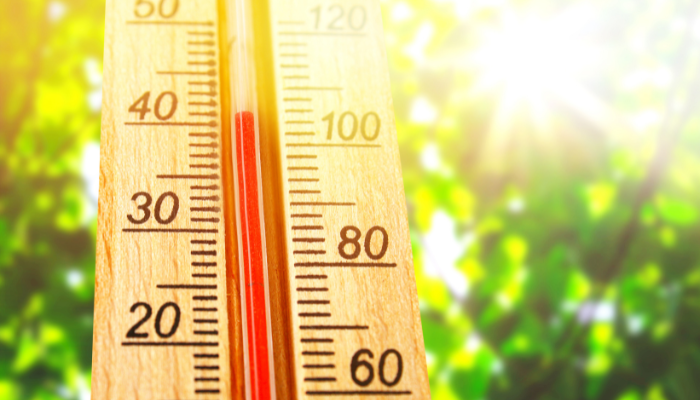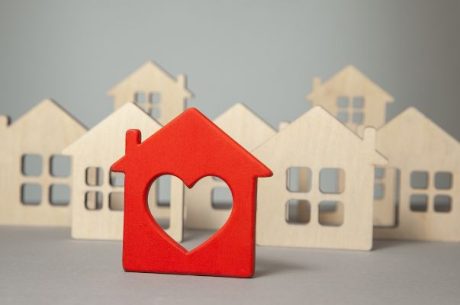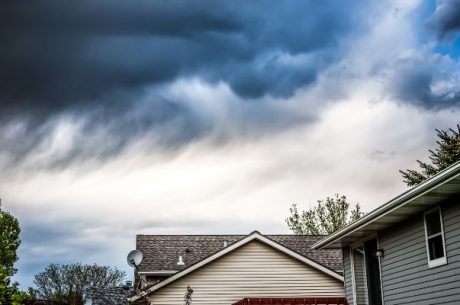Chicagoland residents are no strangers to extreme weather. From bone-chilling winters to sweltering summers, people and structures face a constant barrage of environmental challenges.
In recent years, the city has experienced an increase in the frequency and intensity of heat waves. A heat wave is a period of at least two or three days when temperatures reach or exceed 90°F (32°C).
Excessive heat kills more people annually than any other type of weather disaster. While the primary concern during a heat wave is undoubtedly human safety, it’s also crucial to consider the impact on your biggest investment.
Brutal temperatures coupled with high humidity can wreak havoc on buildings and residences, leading to potential safety hazards and various forms of damage that can be costly to repair. Let’s explore how area property owners can protect their homes and businesses from heat-related damage with these preparedness strategies.
The Chicago Heatwave Threat: Beyond Sweat
Boiling temps stand out as particularly dangerous, not just for our health but also for the integrity of our surroundings. The devastating 1995 heat wave, which claimed an estimated 739 lives, serves as a stark reminder of the potential consequences of sweltering weather.
According to the nonprofit organization Elevate, only 30% of single-family homes in the city have central air conditioning, compared to 76% nationally. The National Renewable Energy Laboratory (NREL) has partnered with the City of Chicago and ComEd to develop a plan for equitable and sustainable energy retrofitting and heat pump upgrades for the region’s many historic homes, helping bolster the city’s resilience against future climate events.
In addition to causing a variety of life-threatening health issues, extreme heat poses significant risks to your home’s integrity and essential systems:
- Structural damage: Prolonged exposure to scorching temperatures can cause materials like wood, plastic, and asphalt to expand and contract, leading to cracks and structural weaknesses.
- Roof failure: Excessive heat can cause roofing materials to deteriorate or warp, causing leaks and water intrusion when it rains. Caulking around the flashing can also dry out, weakening the roof’s structure.
- HVAC strain: Air conditioning and ventilation systems have to work harder during harsh summers, which can lead to mechanical failures and increased energy costs.
- Landscaping issues: Heavy heat dries out soil and plants, leading to a less stable foundation and potential flooding during heavy rains.
- Paint and siding decay: High temperatures can cause exterior paint to blister, chip, and peel, while vinyl siding may crack or buckle.
- Electrical and appliance problems: High temperatures can cause electrical systems and home appliances like refrigerators to overheat, increasing the risk of fires and heat-related illnesses for those stuck inside.
- Mold growth: Warmth and high indoor humidity provide the ideal breeding ground for mold spores, and they thrive best between 77° F and 86° F, especially in humid air.
To effectively protect your property, it’s essential to acknowledge these risks and take proactive measures.
Prevention is Key: Striving for a Heat-Resistant Structure
The good news is, you have some control over how your Chicagoland property weathers the summer heat. Regular maintenance and inspections are essential to keep your property in good condition and prevent heat-related damage.
Protecting Your Home’s Exterior
Your roof is your home’s first line of defense against the elements, including extreme heat. Staying vigilant can help prevent minor issues from becoming major problems during a heatwave.
Look for signs of wear and tear, such as missing shingles, cracks, curling or cupping, and water stains on the ceiling. Consider scheduling professional roof inspections at least once a year, preferably before the summer heat sets in, as well as installing a reflective roof coating or other “cool roof” technology to reduce heat absorption.
Utilize trees, awnings, and strategically placed window coverings like awnings or roller shades to deflect sunlight and keep your home cooler. Planting deciduous trees on the south and west sides of your house maximizes summer shade.
Ensure proper drainage around your foundation by grading your landscaping to slope away from the house. This prevents rainwater from accumulating and potentially seeping into the structure’s lower level. Installing French drains will give you an extra layer of protection against a flooded yard or basement.
Stay Cool Inside
Tightly sealed windows and doors not only keep cool air in but also prevent hot air from entering your home, and ensuring good ventilation and insulating your walls and attic can help reduce heat buildup. Check and replace weatherstripping as needed and use reflective window films to reduce heat gain.
Investing in the latest home technology can help you manage your home’s temperature more efficiently. Programmable thermostats save money, while smart blinds or curtains can automatically block sunlight during peak hours, and whole-house fans are perfect for increasing nighttime cooling and giving your overworked HVAC system a respite.
Our increasingly unpredictable weather patterns and susceptibility to urban flooding provide a compelling reason to re-evaluate your home or property insurance coverage. The city has experienced a disturbing rise in flooding, high temperatures, and severe storms in recent years.
Talk to your agent and make sure your insurance policy adequately covers heat-related damage, including foundation issues, roof damage, and water damage from intense rainfall. Remember that most standard homeowner’s insurance policies do not cover flooding, so you may want to learn more about FEMA’s National Flood Insurance Program, depending on your location.
Chicagoland’s home and business owners face plenty of challenges, but the team at PuroClean of Evanston is available 24 hours a day, 7 days a week, to assist those affected by fire, flood, mold, and other property damaging events.
Questions? We’ve got the answers you need — contact us today!




 PuroClean of Evanston
PuroClean of Evanston